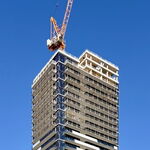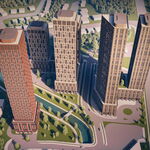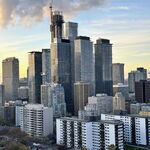LOL - that was unexpected.
Incidentally...
Chávez to Propose Removing His Term Limits
August 15, 2007
by SIMON ROMERO
http://www.nytimes.com/2007/08/15/world/americas/15venez.html
CARACAS, Venezuela — President Hugo Chávez will unveil a project to change the Constitution on Wednesday that is expected to allow him to be re-elected indefinitely, a move that would enhance his authority to accelerate a socialist-inspired transformation of Venezuelan society.
The removal of term limits for Mr. Chávez, which is at the heart of the proposal, is expected to be accompanied by measures circumscribing the authority of elected governors and mayors, who would be prevented from staying in power indefinitely, according to versions of the project leaked in recent weeks.
Willian Lara, the communications minister, said Mr. Chávez would announce the project before the National Assembly, where all 167 lawmakers support the president. Supporters of Mr. Chávez, who was re-elected last year with some 60 percent of the vote, also control the Supreme Court, the entire federal bureaucracy, public oil and infrastructure companies and every state government but two.
The aim of the overhaul is “to guarantee to the people the largest amount of happiness possible,†Mr. Lara said at a news conference on Tuesday.
The project has already led to fierce debate over Mr. Chávez’s expanding power. Critics in the Roman Catholic Church have been clashing with Mr. Chávez over the re-election proposals, with one cardinal, Rosalio José Castillo Lara, calling him a “paranoid dictator.â€
Mr. Chávez’s proposals would centralize his control over political institutions even further, potentially weakening opponents like Manuel Rosales, the governor of Zulia State, who received nearly 40 percent of the vote in presidential elections in December, analysts said. Mr. Chávez’s current term expires in 2012.
“We are entering a new stage implying more intensive state control of society,†said Steve Ellner, a political scientist at Oriente University in eastern Venezuela.
While the proposal to be unveiled by Mr. Chávez may contain surprises, he recently said that “the Venezuelan people should be given the right to keep a president in power as long as they like, whether it be for 5 years, 12 years, 40 years.â€
Since Mr. Chávez’s re-election to a third term in December, he has surprised many with the breadth of the changes in his political and economic policies.
He has nationalized telecommunications, electricity and oil companies; forged a single socialist party for his followers; deepened alliances with countries like Cuba and Iran; and sped the distribution of billions of dollars for local governing entities called communal councils.
As Mr. Chávez, 53, settles into his ninth year in power, images of him have become impossible to avoid here. On billboards, posters and murals, he is seen hugging children, embracing old women, chanting slogans and plugging energy-saving Cuban light bulbs into sockets.
Still, Mr. Chávez has faced serious setbacks at home and abroad even as his approval ratings remain relatively strong in Venezuela. His decision forcing a major television network critical of him off the public airwaves triggered student protests across the country in May and June.
And Mr. Chávez’s attempts to create a regional development bank to rival the World Bank have encountered quiet opposition from officials in Brazil. He has also had to abandon plans for a pipeline to transport natural gas across South America after encountering resistance from environmental groups.
Mr. Chávez’s ambitions to remain in power indefinitely run counter to changes in large Latin American democracies since the demise of military governments in the 1980s. Constitutions elsewhere in the region — with the important exception of Cuba, Venezuela’s closest ally — deter presidents from such temptations.
But Mr. Chávez has signaled a desire to be president at least until 2021 as part of a project to reconfigure political power structures in Venezuela. A central feature of this plan is the president’s communal councils.
About 20,000 of the councils are expected to be created this year, with authority over issues like infrastructure and some social welfare projects transferred to them from municipal and state governments. Mr. Chávez’s critics say the councils must remain loyal to his political ideology to receive funding.
The president said one Sunday last month on his television program that the 1999 Constitution, which he fought for after his first election as president in 1998, has become vulnerable to “counterrevolution†and “infiltration†by reactionary elements.
Still, even some politicians within Mr. Chávez’s coalition have expressed concern that his proposals could weaken the authority of regional governments.
Hard-line supporters of Mr. Chávez say the project will win easy approval by the end of the year, though it remains to be seen if it will be subject to national referendum or a vote in the National Assembly.
Cilia Flores, president of the National Assembly, said Tuesday that she expected two to three months of discussion before a vte, which, if taken by lawmakers, would be approved by a “qualified majority.â€
.






